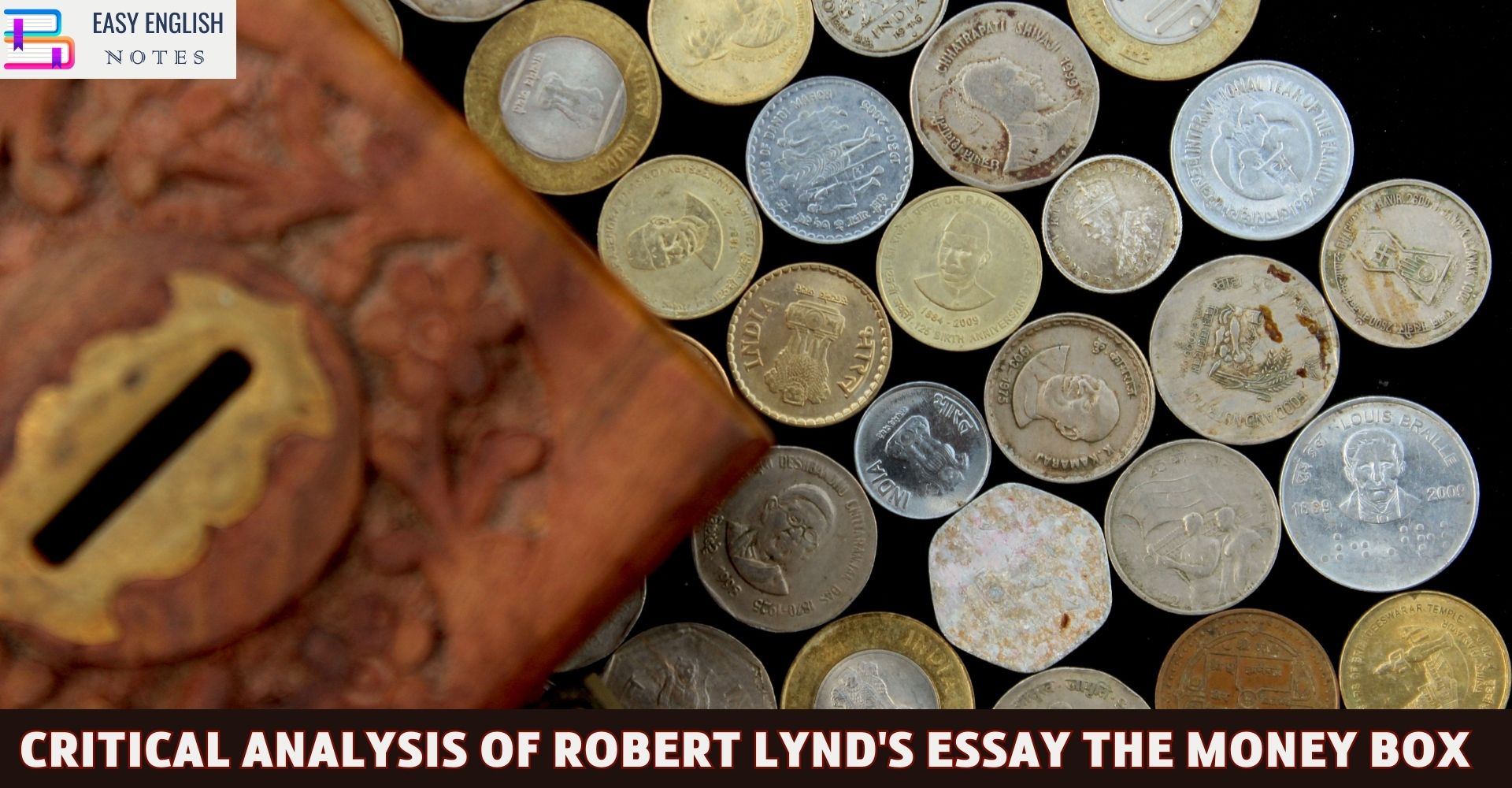Robert Lynd looks upon the money-box as a dubious gift. It has done no good, if no harm, to him. It is certainly no part of the nursery, but it is planted there by parents to teach the children the value of saving. If it may do little good, there is the task of its doing harm in making a wretched miser of its recipients.
One of Robert Lynd’s nieces brought home a money-box from the Christmas Tree at a party. After she had been looking out how to open it, it suddenly sprang open. The interesting point which the author discovered was that no children would ever like to have money-box that would not yield its contents to their casual needs or demands. Thus the very purpose of the gift is defeated. No money box is worthwhile to the children unless it can be easily manipulated to yield up the pennies, put inside. The question naturally arises in the mind of Lynd; “Has no child ever saved money in a money-box?
The money-box is not part of the nursery, but crafty parents introduce it there as a toy to initiate the children into the art of saving. No child would ever offer to choose the money-box for a gift. Children may have visions of riches like the elders and dimly apprehend the need of saving so that they may buy one of their favourite objects a toy revolver, a concertina, a fishing- rod, etc. But a confectioner’s window may prove too strong a temptation to be counteracted by the desire to save. They certainly prefer the positively delightful present to the superlatively delightful future- a temptation which the elders cannot sometimes resist.
Never was Lynd able to buy anything out of his savings. As a matter of a fact after a few days of saving he got quite disgusted. How to get the pennies out of it-that was the problem which exercised his brain. Try it with a knife; however one of the pennies was maneuvered to the edge of the slit, it slipped back into the box. So it was done repeatedly, and no success. It was not unlike the sufferings of Tantalus. So the next best thing was to try it with a chisel. No money-box could certainly resist a chisel. Either the top of the box could be lifted off, or the slit widened. In any case it would not be the same money- box, but there could be no doubt that it would be more serviceable to the owner.
Also Read :
- Compare Hamlet with Macbeth, Othello and other Tragedies
- “The Pardoner’s Tale” is the finest tale of Chaucer
- Prologue to Canterbury Tales – (Short Ques & Ans)
- Confessional Poetry – Definition & meaning
- Line By Line Explanation Of The Poem The Eve of St. Agnes
Now the conflict that the owner would have to face, is a nice one. Each child may be supposed to have two selves-the saving self and the spending self. The saving self will certainly protest at the treatment to which the box is subjected. The spending self can not but be unhappy when he sees the pennies slipping into the box instead of slipping into his hand. It may happen that some of them ultimately gets the better of the other-and so there is an end to the conflict and life runs smoothly. Lynd, however, does not remember when his spending self got a complete victory over his saving self. It was at any rate a momentous event in his life. Lynd does not believe in the interest of the pocket.” This is how a child would argue in a groping way. It is as true of some adults.
There must be some pleasure in saving money, for some people would forgo the pleasure of going to the theatre, or of travelling or of buying-books, or of drinking Hurgundy. But there are also people who save money for the pleasure of saving. The progressive state of a miser could have been best depicted by a Cruikshank. The first scene might show a grandfather offering a money-box as a present to an infant. Ten years later the scene may depict the boy putting a button into the collection plate to save a penny. Another- ten years and he stops smoking cigarettes except those he gets from others. By the age of forty he has secured a good bank balance, but he is convinced that he is poorer than ever. By sixty he is a fairly rich man, but regards himself as a pauper. By eighty he seems to have wasted himself by his economy, and does not know how to spend a monument of selfish self-denial.
It may be noted first how artistically the theme of the essay is developed. A money-box, which is a toy present to a child, is the starting point of the essay. Then the author carefully describes the reaction of the child to such a gift. his personal experience with a money-box and the amusing, but perhaps equally tragic, conflict between the spending self and the saving self. But Lynd is conscious of a more unpleasant and serious effect, that may be produced by the gift of the money-box. So there evolves the Miser’s Progress a picture. touched by Lynd’s lively wit.
PLEASE HELP ME TO REACH 1000 SUBSCRIBER ON MY COOKING YT CHANNEL (CLICK HERE)











